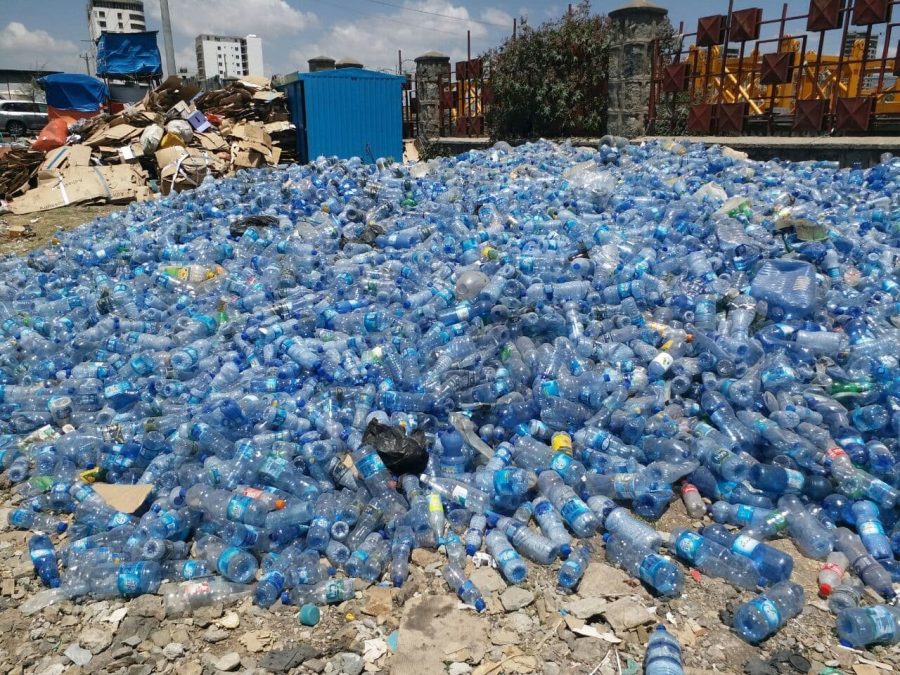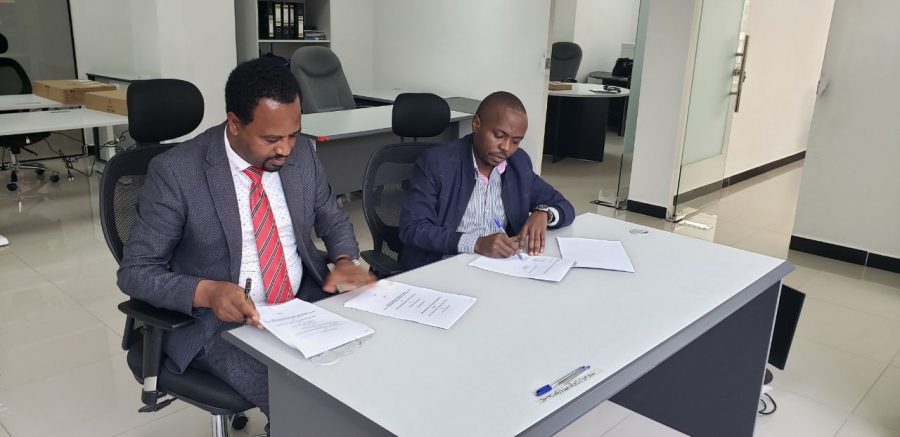Introducing low-cost technology to improve PET collection in Addis Ababa
Studies indicate that by 2050 there will be more plastic in the oceans than fish. To sustainably counter the negative impacts of plastic on our environment and health, action is needed on all levels, with major improvements to waste management and recycling practices being pivotal to counter the current trends.
In Addis Ababa, plastic accounts for 15% of the total waste. PET, used mainly for water and soda bottles, makes up 41% of the total plastic waste generated in the city. Plastic pollution is a common problem in the city, and drainage channels are often clogged with plastic, including many PET bottles, increasing the risk for floodings.

Copyright: GIZ
Improving the collection and recycling of used plastics can contribute to alleviating plastic pollution in the city. However, many factors impede the efficiency of plastic collection and recycling. Among them are high transportation costs of unbaled plastics, a lack of space for waste collectors to sort already collected waste, as well as no access to electricity, which would allow collectors to scale up their operations by using baling machines.
Manual baling machines to improve PET collection
To counter these challenges, NatuReS has partnered up with Irish Aid and the Addis Ababa Solid Waste Management Agency (SWMA) on a project to design and pilot manual baling machines. The aim is to improve PET collection. Baling PET significantly lowers the costs to transport plastic to processors. At the same time, waste collectors receive a 40% premium when selling baled PET. The manual baling machine, which is cheaper to procure and operate than its electric counterpart, will incentivize waste collectors to collect more PET, contributing to cleaner streets while creating additional employment opportunities in the plastic value chain.

Copyright: GIZ